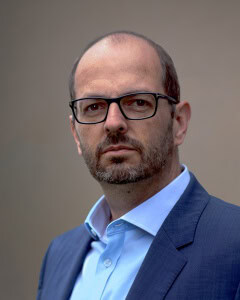
Pharma payments to doctors ‘influences prescribing’
pharmafile | August 22, 2013 | News story | Medical Communications, Sales and Marketing | ABPI, China, Crestor, GSK, Lipitor, Pfizer, ProPublica, Sunshine Act
Doctors in the US who receive free meals or money from pharma companies are more than twice as likely to prescribe their medicines compared to those who receive no extra funding.
This is according to a new academic study that is looking into the financial relationships between the pharma industry and US doctors.
The authors of the report used the Dollars for Docs website, hosted by independent journalist consortium ProPublica for their findings. The researchers found that the average US doctor had a 13% chance of prescribing the drugs of 12 leading pharma companies.
But among the 193,000 doctors who received meals, speaking, consulting or other fees from pharma, the probability jumped to nearly 30 per cent. The data were taken from between 2009 and 2011.
The report also found that male doctors were far more susceptible than females to drug company influence.
And the authors add that there is no need for this extra money, as doctors in the US are already highly paid, with most falling in the top 5% of the American income distribution.
The findings are part of an academic paper written by Joseph Engelberg and Christopher Parsons at the Rady School of Management, University of California at San Diego, and Nathan Tefft from the School of Public Health at the University of Washington.
They say: “The intrinsic motivation is thought to be important in medicine, with the goal of optimising patient health being a paramount objective. On the other hand, this need not coincide with the objective of pharmaceutical firms, who have strong incentives to maximise prescriptions. Thus, when drug companies have financial relationships with physicians, the potential for biased decision-making arises.”
Examples of influence
As an example of this type of behaviour, the authors give the prescription choices of two suburban New Jersey internists, “A.P.” and “G.G.” and their decisions in prescribing the leading patented statins Lipitor, made by Pfizer and AstraZeneca’s Crestor.
The authors say that though widely viewed as close substitutes, Lipitor appeared to be strongly preferred by physician A.P. (579 prescriptions versus 52 for Crestor), with G.G. favouring Crestor (1,584 versus 1,010).
“While generally, one might expect differences in patient demographics or disease incidence may cause doctors to prefer one drug over another, that claim is harder to make in this particular case, with numerous studies showing very similar efficacy between the two drugs,” they write.
“Of perhaps more relevance is that in 2010, A.P. received payments in excess of $12,000 from Pfizer for meals, travel, and speaking fees (versus $182 from AstraZeneca), whereas G.G. was compensated over $2,000 by AstraZeneca and nil by Pfizer.”
But it should be noted that the academics’ sample showed average payments were around $1,700 per doctor – this is still a high level of funding for already wealthy doctors however.
Daniel Carlat from the US watchdog the Pew Prescription Project, said: “As data is [sic] released, we are beginning to see the correlation between payments by companies and increased prescribing by doctors. This could have a really significant effect on industry practices.”
New laws for payment disclosure
This all comes at a bad time for pharma as a number of firms remain embroiled in bribery debates across the world. The biggest hot spot for this type of behaviour is currently in China where Novartis, Sanofi and GlaxoSmithKline are all currently being investigated for allegedly bribing doctors in order for them to prescribe their medicines.
In the US laws are already being prepped to help stop this behaviour, and from 2014 the Physician Payments Sunshine Act will take effect, when drug and medical device manufacturers will be required to publicly report payments to physicians and teaching hospitals.
In the UK this year the pharma lobby group the ABPI also started a voluntary scheme with its members to release aggregate payments to doctors, which totalled £40 million last year.
This comes ahead of new European rules that from 2016 will require pharma to make available on their website the names of healthcare professionals and associations receiving payments.
Ben Adams
Related Content

GSK’s Exdensur receives MHRA approval for asthma and rhinosinusitis
GSK’s Exdensur (depemokimab), a twice-yearly biological medicine, has received approval from the UK Medicines and …
NICE recommends Pfizer’s new once-weekly treatment for haemophilia B on NHS
Walton Oaks, 21st May 2025 – Pfizer Ltd announced today that the National Institute for Health and Care …

Multiple myeloma treatment approved in Japan
GSK’s Blenrep (belantamab mafodotin) combinations have been approved by Japan’s Ministry of Health, Labour and …






